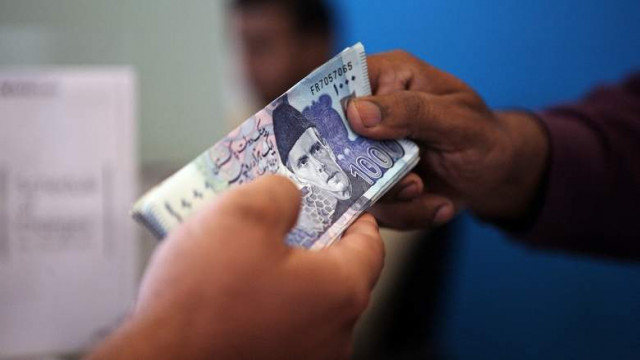Fixing corruption in five years
Pakistan’s score improved by merely five points in the last five years

PHOTO: REUTERS
I looked at the last five years’ data of Corruption Perceptions Index (CPI). The three countries that have had the highest improvements in their CPI scores from 2012 to 2017 turn out to be Myanmar, Belarus and Greece.
The CPI scores depict the perceived level of corruption in public sector on a scale of 0 to 100, where zero signifies a highly-corrupt country and 100 represents a clean country. To put things into perspective, Pakistan’s score improved by merely five points in the last five years, from 27 in 2012 to 32 in 2017, changing the country’s rank from 139 to 117 amongst 180 countries.
PM's advisor urges use of modern tools to tackle corruption
In comparison, Myanmar increased its score thrice as much, improving its rank by 42 positions to 130th in 2017. Belarus and Greece respectively showed improvements of 13 and 12 points in CPI scores, jumping ranks by 55 and 35 positions.
What exactly did these countries do, which improved corruption perception so significantly? While it is difficult to attribute what specifically moved the needle, it is useful to get an overview of their approach towards corruption.
Myanmar is an unusual example, considering that it is still perceived as far more corrupt than Pakistan, yet it is hard to ignore the phenomenal improvement in its CPI score in recent years. The country has been focusing on uprooting corruption from its judicial system that is perceived to be the most corrupt. A specially-constituted parliamentary committee maintains legislative oversight over corruption in judicial and legal matters and is empowered to investigate reported cases. This is supplemented by ensuring punitive measures for the corrupt. Recently, Myanmar’s Anti-Corruption Commission took action against the attorney general of Yangon and a few other high-ranking officials for taking bribes. This was not an isolated incident. Even prior to Suu Kyi’s government, thousands of civil servants were punished for corruption. Alongside enforcement, the Myanmar government also undertook several salary increases for the public sector to lessen the need-driven corruption. Most importantly, the country is undertaking corruption risk assessment to identify high-risk departments and establishing corruption prevention units in many departments to ensure enhanced vigilance.
In Greece, open government has played a critical role in improving corruption perception. All public institutions in the country have to publish their decisions online, including those relating to public procurement. Not only such decisions cannot be implemented if they are not uploaded on designated websites, but in cases of discrepancy between the government gazette and the designated website, the latter prevails. Greece has also improved the process for disciplinary proceedings against civil servants, making it speedier and more transparent to ensure swift dismissal of those involved in corrupt practices.
Committed to make Pakistan corruption free: NAB chief
In Belarus, the government is empowered to confiscate property of corrupt officials, if its cost exceeds their legal income by 25% or more, without the need for hard-to-find evidence. The whistle-blower mechanism has also worked well in the country, leading to a significant increase in the number of corruption investigations.
There can be no cookie-cutter solution for Pakistan’s corruption woes and what worked in these countries might not work in Pakistan. But there is no harm in looking at these examples and improvising, to develop a home-grown solution to eradicate corruption.
Even more importantly, if these countries can improve in five years, why can’t we? If Pakistan can match Myanmar’s performance in terms of CPI score improvement, we can be at Malaysia’s level by 2023. And in yet another five years, Pakistan can even be part of the top 20% countries with least corruption perception. All we need is two electoral terms with the right focus and resolve.
Published in The Express Tribune, December 18th, 2018.
Like Opinion & Editorial on Facebook, follow @ETOpEd on Twitter to receive all updates on all our daily pieces.
















COMMENTS
Comments are moderated and generally will be posted if they are on-topic and not abusive.
For more information, please see our Comments FAQ